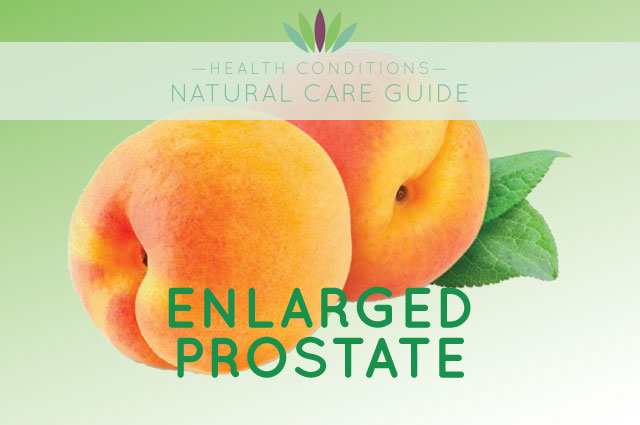Also known as enlarged prostate, benign prostatic hyperplasia (BPH), is a noncancerous (benign) enlargement of the prostate gland, which produces the fluid in which sperm swim. An enlarged prostate can cause urinary problems, though it does not increase the risk of prostate cancer. It affects almost all men if they live long enough.
Symptoms
BPH causes symptoms in half of men who have an enlarged prostate. The enlarged prostate gland can press on the urethra (the tube through which you urinate). Other problems that can occur with the urinary tract and bladder:
- Sudden urge to urinate
- Difficulty starting the urinary stream
- Frequent urination during the night
- Weak urine stream
- Dribbling after urination
- Incontinence
- Sensation of fullness behind the scrotum and in front of the rectum
- Discharge from the penis
- Lower back and thigh pain
Men with BPH are often unable to completely empty their bladders, allowing urine to stagnate. This increases risks of urinary tract infections and bladder stones. If the obstruction is persistent, pressure can build in the urinary tract and damage the kidneys.
Some over-the-counter drugs, including antihistamines and cold remedies, can affect urine flow and bladder function, and cause a temporary blockage in men with BPH.
Causes
BPH occurs when prostate cells grow in number, resulting in an enlarged prostate gland that can cause symptoms of urinary obstruction. Although the exact cause of BPH isn’t clear, researchers believe it may be due to the fluctuations in sex hormones, especially testosterone, that occur normally with age.
Growth of the prostate causes the gland to press against the urethra like a clamp on a garden hose. The bladder wall becomes thicker and irritable. The bladder begins to contract even when it contains small amounts of urine, leading to more frequent urination.
Risk Factors
BPH is extremely common and most men will experience an enlarged prostate, especially after age 50. Factors that appear to increase the risk of BPH include:
- Age: up to half of men over age 60 have some degree of BPH; up 90 percent of men in their 70s and 80s have it
- A family history of BPH
Diagnosis
Doctors usually diagnose BPH by conducting a physical examination, reviewing a patient’s medical and family history, and asking about symptoms. Tests used to determine a diagnosis of BPH may include:
- Digital rectal exam. This helps the doctor determine the size, texture, and shape of prostate and helps rule out prostate cancer.
- Transrectal ultrasound. Ultrasound imaging is used to rule out prostate cancer.
- Urine tests. These are used to rule out urinary infection.
- Prostate-specific antigen test. A test that measures blood levels of prostate-specific antigen. A positive reading indicates the presence of benign conditions such as BPH, while high test results may suggest the presence of prostate cancer.
Conventional Treatment
Men who don’t experience symptoms of BPH don’t require treatment. When BPH is treated, conventional physicians typically use the following:
- Lifestyle changes. Men with mild symptoms of BPH may be able to manage them with lifestyle measures, such as urinating frequently, avoiding all liquids within two hours of bedtime, eliminating the use of drugs (both prescription and over the counter) which can aggravate symptoms of urinary obstruction, and exercising regularly.
- Medication. Drugs like finasteride (Proscar) lower hormone levels, shrinking the prostate and increasing urine flow, but can have side effects such as a reduced sex drive and impotence. Proscar (generic name finasteride) blocks the action of the enzyme, 5-alpha-reductase, that converts testosterone to a more potent androgenic hormone called dihydrotestosterone (DHT) in the liver. DHT is believed to be principal cause for enlarging the prostate. It usually takes at least six months to reach peak efficacy. Certain high blood pressure drugs called alpha-1 blockers may also be prescribed to help improve urine flow.
- Antibiotics. Antibiotics rarely help the prostate. This is a physical issue, with the tissues of the prostate growing while to surrounding tissues do not, leading to spasms. Antibiotics will not help.
- Surgery. For severe symptoms, conventional doctors may recommend surgery to relieve BPH. The most common surgical procedure is transurethral resection of the prostate (TURP), a minimally invasive treatment that removes part of the prostate. Laser surgery limits bleeding and shortens recovery time. In extreme cases, a prostatectomy (removal of the prostate) may be recommended.
Wendy’s Natural Recommendations
I suggest the following nutritional changes and supplements to help address the symptoms of BPH. All of these treatments are safe and natural, and known to help protect and support prostate function, by inhibiting the development of BPH or prostate cancer, or both. Keep in mind that it may take at least eight weeks of using supplements before you see improvement of symptoms.
Lifestyle
- Urinate when you get the urge.
- Frequent Ejaculation. This reduces the size of the prostate since it produces the fluid which hold sperm.
- Avoid all liquids within two hours of bedtime.
- Eliminate the use of drugs (both prescription and over the counter) which can aggravate symptoms of urinary obstruction.
- Exercise regularly.
- Warm baths. The heat of the water will penetrate the prostate to relax the prostate, reduce swelling and promote healing.
- Relax or learn to relax through meditation, breathing and relaxation techniques and calming music.
- Avoid prolonged sitting. If the onset of symptoms coincides with physical activity such as biking, or increased sitting your routine should be changed.
Supplements
- Prostacine. This supplement contains saw palmetto, bovine prostate nucleoprotein as well as synergistic nutrients to enhance its effectiveness. Glandular products like Prostacine contain polypeptides which have been shown to enhance prostate organ and gland activity. This is the number one supplement I would recommend for prostate health.
- Saw palmetto (Serenoa repens). Studies show that saw palmetto can shrink the size of the prostate, promoting healthy prostate function. Dosage is 160 mg of an extract (standardized to 90% fatty acids and sterols) twice a day. Inform your doctor is you are using saw palmetto. Saw palmetto shows promise in supporting prostate health, urinary tract function and a healthy libido.
- Zinc. Zinc is the number one mineral for prostate health. If you have prostate issues, you must supplement with zinc. Most male reproductive and prostate problems have zinc deficiency as part or all of the cause. The prostate gland accumulates zinc more than any other tissue of the body. These conditions include prostatitis, enlarged prostate, prostate cancer, erectile dysfunction and low testosterone. Zinc reduces the size of the prostate gland and diminishes symptoms in most patients. It has also been shown to be a 5-alpha-reductase inhibitor, which stops the prostate from growing if inhibited. Zinc can be found in the Myers Detox Store.
- Willow herb (Epilobium parviflorum). This herb has been shown to have an inflammation-inhibiting and healing effect on acute and chronic inflammation of the prostate and BPH.
- Pygeum (Pyguem africanum). It has long been known that a standardized extract of the bark of Pygeum africanum, a large evergreen tree native to southern Africa, is effective in reducing the symptoms and clinical signs of enlarged prostate. This extract contains a variety of fat-soluble sterols and fatty acids that are believed to reduce prostatic inflammation and draw out deleterious substances that bind to the walls of the prostate. Its modes of action are likely to be partly similar to and partly different from those of saw palmetto, so it is beneficial to combine the two extracts in the same formulation.
- Stinging nettle root (Urtica dioica). Stinging nettle is a common herb, not to be confused with the completely different stinging nettle that is native to the southeastern United States. Extracts of U. dioica have long been used in the treatment of urinary-tract disorders, as well as gout and rheumatism. This herbal remedy has also been found to be effective against the symptoms of enlarged prostate, especially when used in combination with pygeum extract. Both of these extracts are believed to be 5-alpha-reductase inhibitors, and both also apparently inhibit the enzyme aromatase, which converts testosterone into the female sex hormone estradiol. Inhibition of aromatase is beneficial because estradiol, in addition to supplanting testosterone, stimulates the growth of prostate cells — exactly what those with BPH do not want.
- Green tea extract. Epidemiological studies show that in Asian countries, the incidence of prostate cancer is low compared to the West, and they indicate that green tea is a possible explanation for the difference. Indeed, studies on the biological effects of green tea have proven that its active ingredient, the polyphenol EGCG, induces cell death in human prostate cancer cells.
- Selenium. Selenium is a mineral that is essential for the proper functioning of many bodily systems, including the prostate gland. A recent laboratory study of the effects of selenomethionine (a seleno-organic compound that occurs naturally in some cereal grains and vegetables) has shown that it is an effective inhibitor of the growth of prostate cancer cells. Selenium can be found in the Myers Detox Store.
- Lycopene. This is the now-famous “tomato chemical” that has received so much attention for its anticancer properties — especially against prostate cancer. It is a powerful antioxidant. Increased consumption of tomato products and other lycopene-containing foods might reduce the occurrence or progression of prostate cancer. One would have to eat about 3 pounds of tomatoes daily to get the optimal amount of lycopene, so supplementation with the concentrated lycopene is a good option. This is a great supplement that contains lycopene.
Food
- Avoid alcohol. Alcohol is a diuretic that will cause you to have to urinate more frequently. At the very least, don’t drink caffeinated or alcoholic beverages after dinner.
- Avoid caffeine. Caffeine is a diuretic that causes you to urinate all the liquid you drank plus a little more.
- Avoid saturated fats and trans-fats. Focus on the healthier monounsaturated and omega-3 fats.
Alternative Methods
- Myers Detox with Hair Mineral Analysis. The underlying cause of most disease and health conditions are chemical and heavy metal toxicity. Prostate problems can result from cadmium toxicity, which induces zinc deficiency and enlarged prostate. Cadmium is a substance that is becoming more and more of a problem in our environment due to industrial dumping. BPH will no doubt be helped by detoxing heavy metals and industrial chemicals, built up in your system over your lifetime, that are irritating or contributing to this condition. In the process, you will greatly increase your overall health and prevent future diseases from developing, namely cancer. I offer extensive information on this site on how to detox from heavy metals and chemicals. Learn more about Myers Detox Protocol here.
This material is for educational purposes only. The preceding statements have not been evaluated by the Food and Drug Administration. This information is not intended to diagnose, treat, cure or prevent any disease.










